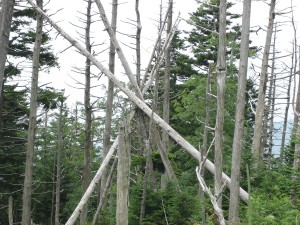The native tribes of New Guinea will not sleep under a dead tree. Superstition? No: risk assessment.
What’s the chance a dead tree will happen to fall the one night when someone is asleep under it? 1000 to 1? Maybe, but a native New Guinean sleeps in the forest 365 nights a year, and after three years that’s more than 1000 nights. That’s one tree falling.
Native New Guineans learned the hard way to avoid small risks that add up over time, and Jared Diamond says we should be careful about those small risks too, in an interesting recent essay in the NYTimes.
Mr. Diamond studies “traditional societies” and says Americans worry too much about extremely unlikely big impact risks, and not enough about the everyday risk that actually does cause harm to lots of people every year. He calls them “repeated low risks.”
How many times do we take a flight of stairs? Step into the bathtub? Drive to the store? What’s the chance something will go wrong? But what if it does? A twisted ankle? A head injury? Missed work? Medical expenses?
My wife works with a doctor who just had surgery for a broken bone that happened when he fell down a flight of stairs at the hospital. He was checking email on his phone.
Tribal New Guineans don’t have 911 responders, medical or disability insurance, but does that matter? Maybe we should pay attention to small risks too.
Don’t sleep under dead trees.
